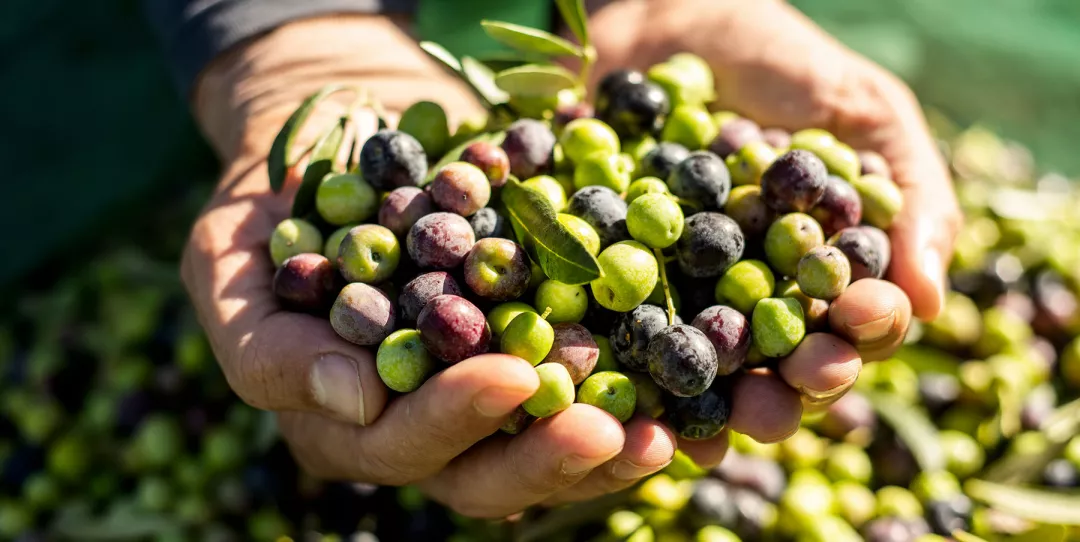Olive experts in Italy and Malta share best practices
- CAP Implementation
- Agricultural Productivity
- CAP Strategic Plans
- Climate and Climate Change
- Economic impacts
- Environment
- LEADER
- Long-term Vision for Rural Areas
- Networking
- Research & Innovation
- Rural Development
- Sustainability
This LEADER newsletter article shows how Transnational Cooperation has supported knowledge sharing and peer learning across countries on better ways to reinforce olive resilience.

If one asks an AI essay writer "why are olives important in rural Europe?" one might find a lot of truth in opening AI sentences such as: "Olives hold significant importance in rural Europe, serving not only as a vital agricultural product but also as a cultural symbol and economic driver. The presence of olive groves often defines the character of their regions, illustrating a longstanding relationship between rural populations and local natural resources."
Olives are clearly very important for Europe, and the Common Agricultural Policy (CAP) is designed to help safeguard the sustainability of EU olive systems. This includes possibilities for taking advantage of LEADER Transnational Cooperation (TNC) funds to share knowledge and peer learning across countries about better ways of reinforcing olive resilience. An inspiring case study example demonstrating this is one of many that can be found in the EU CAP Network Good Practice database.
South-south cooperation
South-south cooperation within the EU brings similar regions together to gain new insights from neighbours about topics such as climate, food, services, demographics, etc. Combining such similar thematic expertise can help catalyse new ideas from the synergies that are generated during the cooperation. Olive farms in Malta and Italy gained these benefits thanks to a TNC project that was completed last year.
A Good Practice story about this TNC action on the EU CAP Network website shares information about the project's context, objectives, activities, results, lessons learned, financial details, contact points, and more.
This LEADER project involved a transnational exchange of good practices in olive tree cultivation between two Local Action Groups (LAGs) from Malta and Italy. Knowledge-sharing aims focused on the recovery and commercialisation of local Maltese olives used for extra virgin oil. Several awareness-raising and dissemination activities were organised, followed by the publication of press and scientific articles sharing the results of the cooperation project.
Top results from the TNC success story include 46 different genotypes in Maltese olive trees that are capable of facing new agronomic challenges and future climatic constraints. Knowledge like this (facilitated by the LEADER principle of encouraging joint work between people from different countries through TNC) can represent added value from TNC because it provides all partners in the olive supply chain with new evidence-based confidence to invest in the future of these varieties. It also confirms the scientific techniques that are needed to continue a better understanding of optimal conditions for conserving olive germplasms as national genetic resources.
Other lessons learned are presented in this TNC Good Practice story. These are also pertinent for peers as they observe that LEADER supports and improves the resilience of mainstream agrifood products, like olives. The Good Practice story further underlines how LEADER-funded TNC projects can make a significant contribution to knowledge transfer that boosts sustainable development.
Read the full TNC story in the Good Practice document and search the Good Practices database for more motivational TNC ideas.
TNC latest news
The EU CAP Network is currently supporting LAGs and Managing Authorities to promote the upscaling of LEADER TNC in the present CAP period.
Liaison is ongoing, and includes priorities relating to collecting and sharing information about TNC rules in different Member States, the dissemination of TNC cooperation ideas to National Networks, and participation at relevant events with a cooperation focus (e.g., LINC).
Ongoing development of relevant functions for the EU CAP Network LAG Directory is also progressing, with the purpose of facilitating better cooperation, and potentially better alignment of TNC rules between Member States.
One of the factors in making TNC projects successful involves making sure that TNC projects are designed and implemented to fit with the partners' different administration systems in the various countries.
Whilst EU regulations provide an overall framework for LEADER LAGs and national authorities, EU subsidiarity allows each country and LAG to tailor its administration requirements to its own needs. In the current 2021-2027 programming period LAGs are able to select TNC projects themselves.
However, streamlining TNC procedures between countries can be a priority consideration for Managing Authorities to ease some practical constraints often faced during project development.
The EU CAP Network understands the importance of better alignment of administrative processes and helped facilitate a discussion on this during their TNC workshops at the LINC24 event earlier this year.